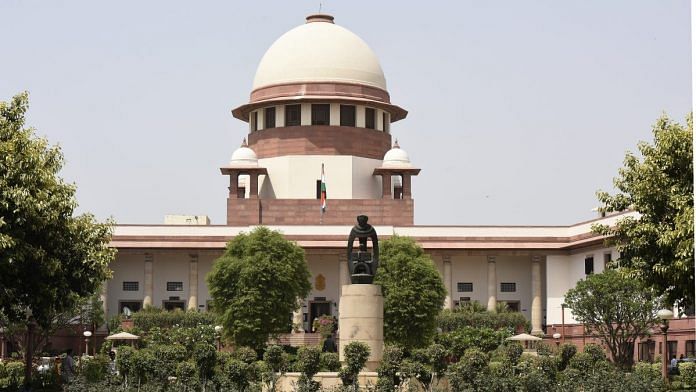SC refuses to refer the controversial order to a larger bench as well; the original petitioner says court had based its decision on a ‘forged FIR’.
New Delhi: The Centre Thursday argued that the Supreme Court’s 20 March order, which essentially watered down the provisions of the SC/ST Act, was responsible for all acts of Dalit atrocities recorded after it.
The Centre was referring to the apex court’s order that prevent automatic arrest in cases under the SC/ST Act and called it “wrong”.
Despite the government’s plea, the apex court, however, refused to either stay or refer the case to a larger bench. Several states had also sought a review of the ruling.
The top court will now hear the case on 16 May.
The original petitioner on whose complaint the entire case began has also moved the top court seeking a review of the verdict, alleging the court had based its decision on a “forged FIR”.
Bhaskar Gaikwad, who was posted as a store-keeper in a government pharmacy college in Maharashtra’s Satara district, had initially filed a complaint in 2009 alleging caste-discrimination against his superiors and subsequently in 2016 against another government servant, S.K. Mahajan, who was involved in granting sanction to prosecute his seniors.
Gaikwad sought recall of his order alleging that certain portions of the FIR have been forged while being translated from Marathi to English.
What govt argued
“This judgment has resulted in the loss of life,” attorney general (AG) K.K. Venugopal said to the astonishment of the bench comprising Justices A.K. Goel and U.U. Lalit — the authors of the 20 March order that watered down the provisions of immediate arrest.
The gang rape of a physically challenged Dalit woman in Vizianagaram, Andhra Pradesh, the death of a 78-year-old Dalit woman on suspicion of witchcraft and the case where a Dalit couple who were beaten to death are but a few examples the top law officer read out in court.
“I hesitate to say this, but I must. Your verdict is wrong,” the AG said urging the court to refer the review petition to a larger bench.
Venugopal suggested the judgment did great disservice to a community that historically was “suppressed for thousands of years”.
Goel then asked why no immediate action was taken in such instances. “Why punishment can’t be given in a week or in a month? Social action at the society’s level is also required,” he added.
To this, the AG responded by saying that action (of the prosecuting agencies) was tardy and the attitude (of the people and the society) was set. To indicate an instance of “great caste divide,” Venugopal referred to the case where upper-caste Thakurs in Madhya Pradesh allegedly objected to a Dalit groom’s wish to ride a horse during his wedding procession.






